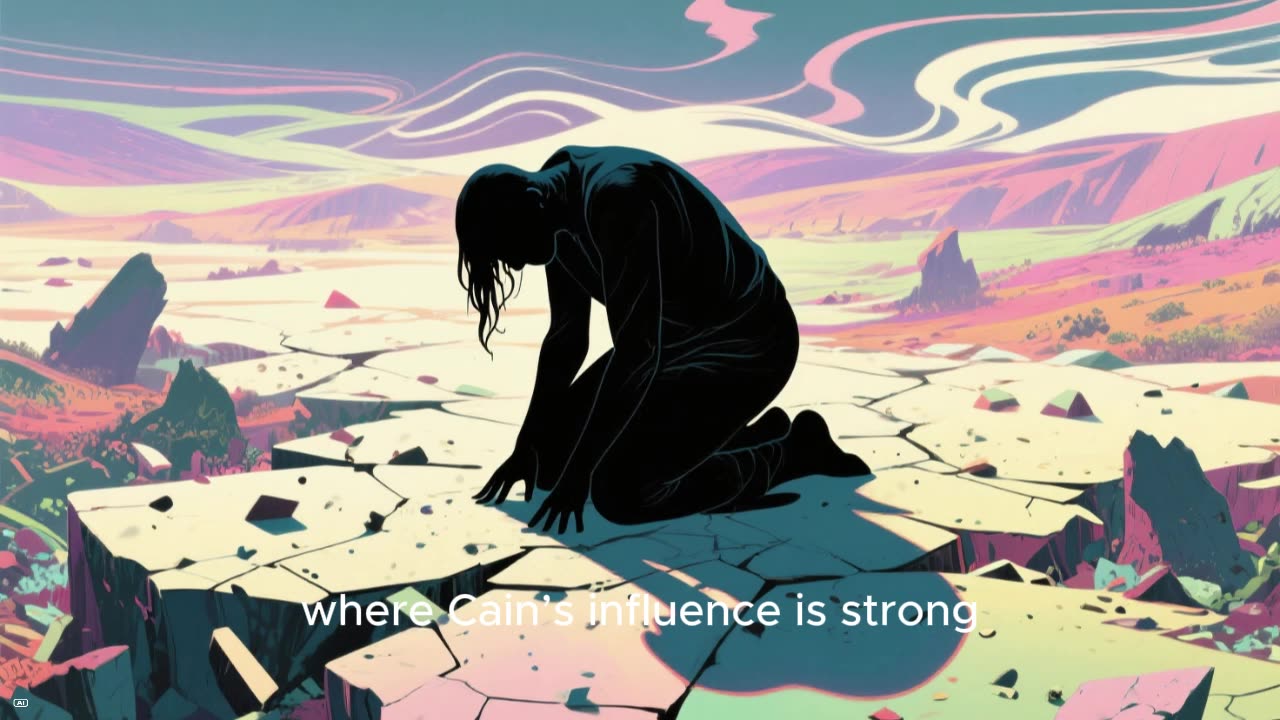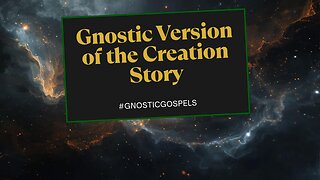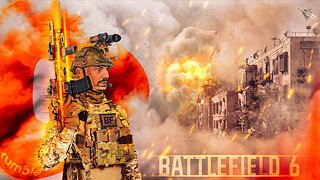Premium Only Content

The 12 Archons: From Gnosticism to Modern symbolic influence
1. Athoth (Face of a Sheep)
Represents naivety and compliant obedience. Today, Athoth symbolizes social conformity and unquestioning acceptance of authority, like bureaucratic systems that discourage critical thinking.
2. Eloaiou (Face of a Donkey)
Symbolizes stubbornness and ignorance. Eloaiou can be seen in rigid institutional mindsets that resist change or new ideas, such as outdated educational or legal systems enforcing dogma.
3. Astaphaios (Face of a Hyena)
Embodies cruelty and deceit. This archon relates to manipulative media, propaganda, or toxic power structures that distort truth and prey on fear.
4. Yabel/Yobel (Envious, Linked to Death)
Represents jealousy and destructive competition. In modern terms, Yabel parallels social divisions fueled by envy and systems that commodify life and death, like exploitative capitalism or divisive politics.
5. Adonaios/Sabaoth (Repentant, Ruler of Seventh Heaven)
Unique among archons for showing remorse. Seen as reformist or softer power within institutions that can evolve, such as judicial systems seeking justice or progressive religious movements.
6. Cain
Known for fratricide, symbolizing violence and betrayal. Modern Cain is reflected in social unrest, familial and communal conflict, or systemic oppression.
7. Abel
The innocent victim, associated with suffering caused by others’ injustice. Abel represents marginalized groups or individuals who suffer under societal archons.
8. Abrisene
Largely ambiguous, sometimes thought to embody confusion or ambiguous authority. Could represent unclear or opaque institutional powers that manipulate behind the scenes.
9. Yobel (Similar to Yabel)
A cosmic ruler enforcing control, symbolic of entrenched hierarchical power structures resistant to change, such as corporate monopolies or rigid governments.
10. Armoupieel
Little is known; possibly symbolizes faceless bureaucratic control or insidious influence operating beneath awareness.
11. Melcheir-Adonein
Possibly linked to false ideals of divinity or leadership. Today, this might reflect charismatic leaders who mislead or inspire cult-like followings.
12. Belias (Ruler of Abyss, Darkness)
Represents ultimate chaos, darkness, and oppression. Belias symbolizes deep systemic evils: corruption, surveillance states, or hidden networks perpetuating fear and disempowerment.
-
 9:34
9:34
Doubting Tomasz 2.0
3 days agoGnostic Version of the Creation Story
27 -
 LIVE
LIVE
GamerGril
3 hours agoI'm Up To My Neck In Zombie Blood 💞Dying Light The Beast💞
175 watching -
 53:29
53:29
Tactical Advisor
5 hours agoUnboxing New Guns | Vault Room Live Stream 042
105K9 -
 LIVE
LIVE
Ouhel
4 hours agoSUNDAY | BATTLEFIELD 6 | O'HELL LIVE | RUMBLE UPDATE
137 watching -
 56:20
56:20
Steven Crowder
1 day agoEXPLAINED: Is America Headed For a Market Crash?
152K106 -
 LIVE
LIVE
KammieKamz
4 hours agoThe Queen of COD 👑 - BF6 & COD Stream
69 watching -
 LIVE
LIVE
S0lidJ
2 hours ago🟢Live -S0lidJ - This Game Is A Blast
26 watching -
 21:38
21:38
Professor Nez
6 hours agoHE'S BACK! Elon Musk EVISCERATES Biden Judge Over Big Balls Verdict
28K54 -
 6:22:33
6:22:33
JdaDelete
15 hours ago $0.13 earnedFinal Fantasy VII Rebirth | The Empire Strifes Back
2.84K -
 19:39
19:39
TimcastIRL
1 day agoTim Pool Wins $1 Million Bet During Debate Against Liquid Death CEO
245K111